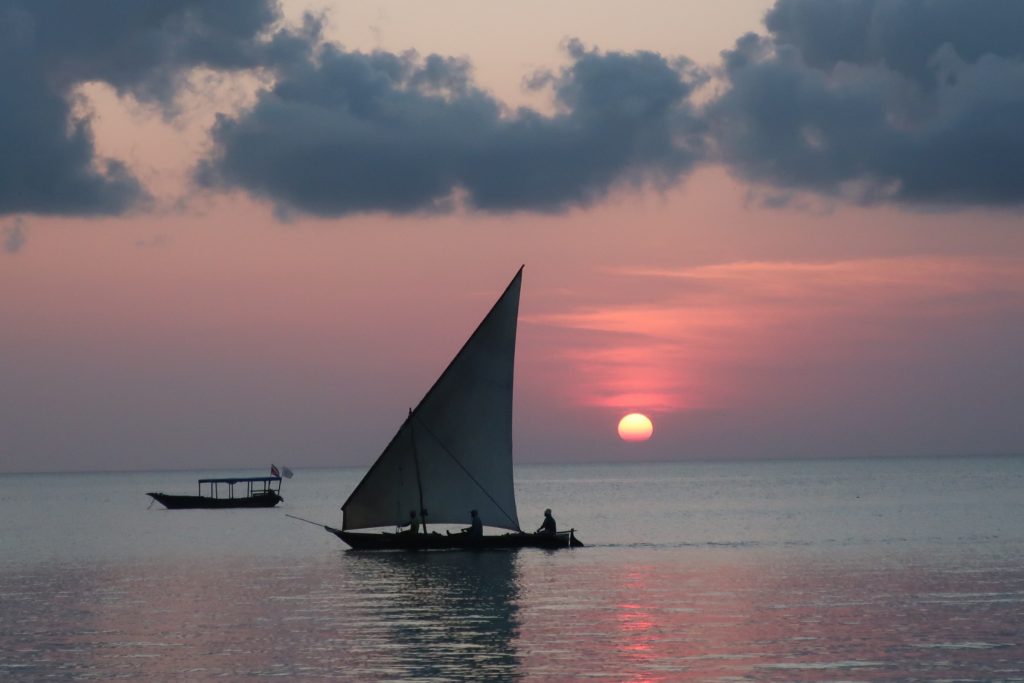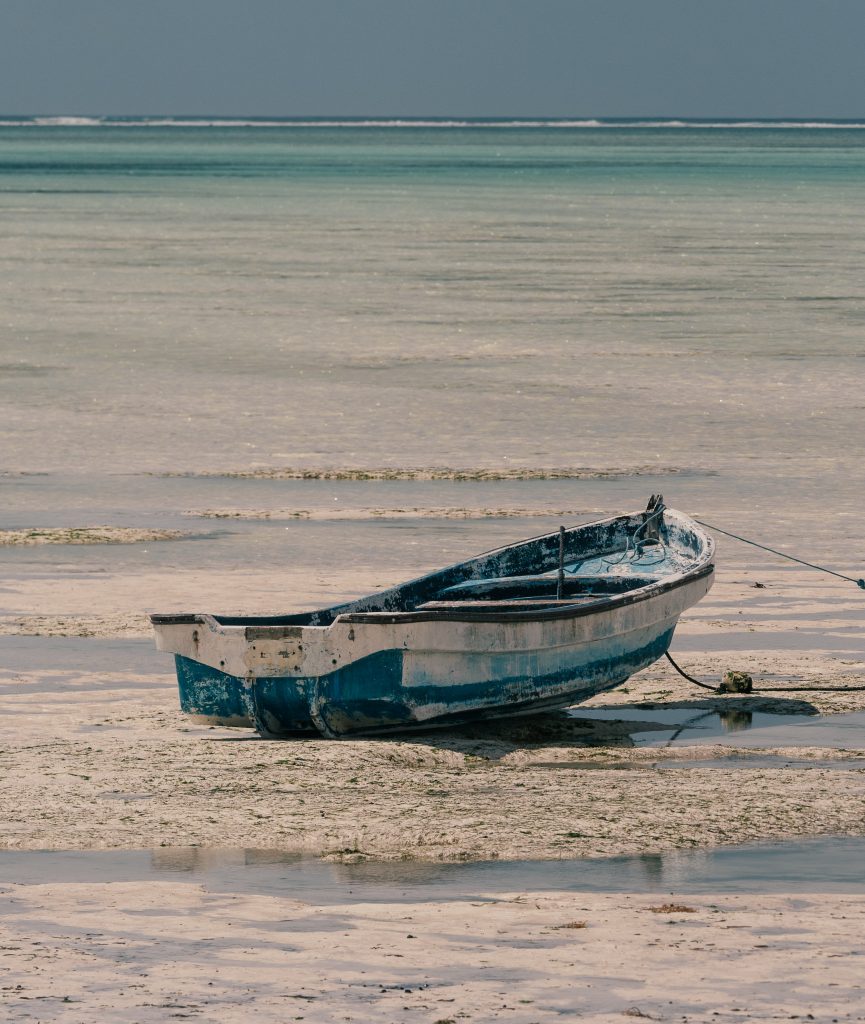Pemba Island
Pemba is the little brother of Unguja, Zanzibar’s main island. Although Unguja receives far more visitors annually, we believe that Pemba deserves more attention than it is currently given. This secret oasis is one of the world’s last untouched treasures.
Pemba Island, at a glance
Pemba remains largely ‘undiscovered’ by travellers, and this is part of the island’s appeal. Pemba is often overshadowed by its larger neighbour, Unguja, even though Pemba is hillier and more verdant.
Pemba is a hidden masterpiece filled with forests, mangrove swamps, hidden beaches, lagoons, and tidal sandbanks. It is littered with the ruins of mosques and tombs, reminders of the Arab domination of the island in the 17th century.
Pemba’s pristine beauty has been preserved so well due to a lack of awareness about the island. There are few towns and hotels on Pemba, making this destination one for the intrepid traveller.
Known as ‘clove island’ due to being the world’s main exporter of cloves (70% of all the world’s cloves are grown in Pemba) the island is also the centre for ju ju traditions of medicine, giving it a reputation as the world’s ‘magic’ island.

Getting around Pemba

While Pemba is off the beaten track, there are several ways to get to this secluded island.
Chartered flights with Coastal Air or Auric Air are the most popular methods of getting to the island. Most travellers fly from Unguja and the journey only takes 30 minutes. It is also possible to fly from Dar es Salaam.
You can travel from Zanzibar to Pemba via ferry, but the crossing is rough, and it can be unsafe. Zazm Marine is the most reliable ferry.
If you arrive at the airport or ferry port, your resort should organise a pick-up for you. This may be included, or it may be added to your bill.
Pemba only has one main tarred road which runs through the middle of the island, and many sights are inaccessible. As such, one of the most popular modes of transport is the bicycle, and bikes can be rented from your hotel for around $10 per day.
For travellers who cannot cycle, there are also buses and dala dalas (simple buses that only leave when they are full and do not have a set timetable). Both options cover the main routes between the towns and villages, although neither have much space for luggage.
Renting a car is unusual in Pemba due to the small size of the island. Most travellers hire a driver at a taxi rank or book a tour through their hotel. A car and driver for the day should cost around $50-$70, and tours are often led by a taxi driver who will drive you to the sights that you choose.
Motorbikes can also be hired through Coral Tours in Chake Chake. Most activities at Pemba are organised through your hotel, and the hotel will take care of your transport. Various cultural and environmental experiences are scattered around Pemba island.
Activities on Pemba Island
There are several fascinating archaeological sites that are unmissable for travellers who are interested in history.
These include the Ras Mkumbuu, which features a mosque, ancient tombs, and houses from the 14th century and Chakawa, which contains the ruins of a town dating from the 11th to 15th century.
The Mkama Nduma ruins is one of the most interesting sites. This 15th century palace is the only known fortification on the Swahili coast.
To immerse yourself in the local culture, visit the Pemba Museum in Chake Chake to learn the story of the island. The island’s main town, Chake Chake, also contains the ruins of an old fort.
Pemba is known as the ‘clove island’ because the island is the world’s main exporter of cloves. You can visit a spice farm to see the clove trees and find out how cloves are turned into essential oils at the ZSTC Clove Oil distillery.
The Zanzibar archipelago is nicknamed the ‘spice islands’ due to the countless spice farms that are found in the region. Pemba Island’s spice farms also produce cardamom, cinnamon, turmeric, black pepper, lemon grass, vanilla, and nutmeg.
You can book a cookery lesson or get a tour of the farm to see how the products are cultivated, learn about the history of the spice trade in the region, and get the chance to shop for the freshest, most authentic spices in the world.
This sanctuary is home to a colony of 4,000 Pemba flying foxes, a large bat which is indigenous to Pemba.
You can watch the bats from a small viewing platform. They hang upside down during the day and frequently take to the air.
Kidike is situated next to Kangagani village, 2km east of the main road between Chake Chake and Wete. Ask your driver to turn off the main road 10km northeast of Chake. Travel through Kangagani village and the sanctuary will be on your right.
Pemba is known for being one of Africa’s best scuba diving locations. The island is surrounded by magnificent underwater walls and excellent topography, providing a habitat for an array of sea creatures, including turtles, reef sharks, hammerhead sharks, and big game fish.
The best diving sites are on the west coast of the island, including Misali Island and areas off the Kigomasha Peninsula, the Fundu Gap and Njao Gap, which are all part of the Pemba Channel Conservation Area.
Most divers have prior experience, but some companies provide courses and day trips for beginners. There is excellent visibility throughout most of the year, but you should avoid the rainy seasons (April to May, November to December).
Deep sea fishing is a popular half-day or full-day activity, and you have a chance of catching marlin, dorado, yellowfin tuna, and wahoo.
Pemba’s proximity to the Pemba Channel means that you have a good chance of catching big game fish that can be barbecued for dinner.
The prime fishing season is from mid-July to mid-April.
Pemba Island FAQs
Pemba is a very laid-back community where most tourists feel safe. It is important to bring antimalarials, although most hotels have mosquito nets.
Yes, Pemba is the second largest island in the Zanzibar Archipelago. Unguja Island is the largest island within the Zanzibar Archipelago, and Mafia Island and Latham Island are Pemba’s smaller neighbours.
